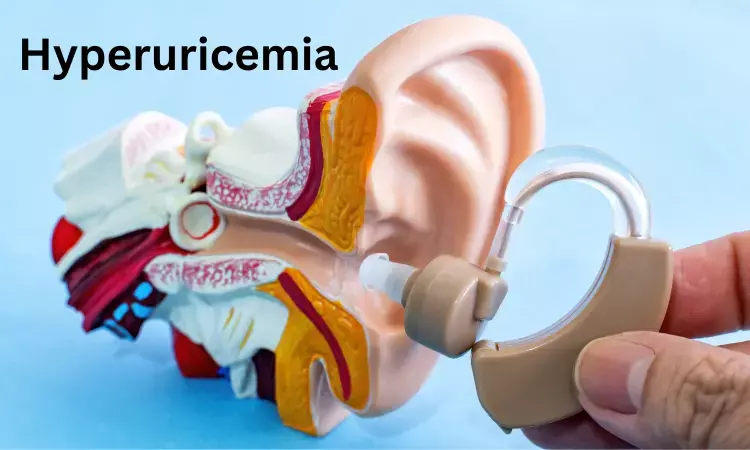- Home
- Medical news & Guidelines
- Anesthesiology
- Cardiology and CTVS
- Critical Care
- Dentistry
- Dermatology
- Diabetes and Endocrinology
- ENT
- Gastroenterology
- Medicine
- Nephrology
- Neurology
- Obstretics-Gynaecology
- Oncology
- Ophthalmology
- Orthopaedics
- Pediatrics-Neonatology
- Psychiatry
- Pulmonology
- Radiology
- Surgery
- Urology
- Laboratory Medicine
- Diet
- Nursing
- Paramedical
- Physiotherapy
- Health news
- Fact Check
- Bone Health Fact Check
- Brain Health Fact Check
- Cancer Related Fact Check
- Child Care Fact Check
- Dental and oral health fact check
- Diabetes and metabolic health fact check
- Diet and Nutrition Fact Check
- Eye and ENT Care Fact Check
- Fitness fact check
- Gut health fact check
- Heart health fact check
- Kidney health fact check
- Medical education fact check
- Men's health fact check
- Respiratory fact check
- Skin and hair care fact check
- Vaccine and Immunization fact check
- Women's health fact check
- AYUSH
- State News
- Andaman and Nicobar Islands
- Andhra Pradesh
- Arunachal Pradesh
- Assam
- Bihar
- Chandigarh
- Chattisgarh
- Dadra and Nagar Haveli
- Daman and Diu
- Delhi
- Goa
- Gujarat
- Haryana
- Himachal Pradesh
- Jammu & Kashmir
- Jharkhand
- Karnataka
- Kerala
- Ladakh
- Lakshadweep
- Madhya Pradesh
- Maharashtra
- Manipur
- Meghalaya
- Mizoram
- Nagaland
- Odisha
- Puducherry
- Punjab
- Rajasthan
- Sikkim
- Tamil Nadu
- Telangana
- Tripura
- Uttar Pradesh
- Uttrakhand
- West Bengal
- Medical Education
- Industry
Hyperuricemia more likely to cause hearing loss in elderly patients

Hyperuricemia is a condition characterized by elevated uric acid level in the blood. The normal upper limit is 6.8mg/dL, and anything over 7 mg/dL is considered saturated, and various symptoms can occur and needs proper medical manangement.
Hyperuricemia is known to cause variety of comorbidities. The current study investigates the association between hyperuricemia and hearing impairment in Korean adults. The study found that hyperuricemia as an independent factor associated with hearing impairment, especially in females and the elderly aged 60 years or more however gout was not associated with the same. The findings are published in Medicina journal.
The researchers conducted an audiometric and laboratory test data from the 2019 to 2020 Korean National Health and Nutrition Examination Survey (KNHANES) were used for analysis. Hearing impairment was defined as a pure-tone average (0.5, 1, 2, 4 kHz) threshold level ≥ 41 decibels. The definition of hyperuricemia was different for males and females: >7 mg/dL for males vs. >6 mg/dL for females.
The key findings of the study are
• A total of 4857 (weight n = 17,990,725) subjects were analyzed. The mean age was 56.8 years old. The weighted prevalence was 12.1% for hyperuricemia and 2.5% for gout.
• The prevalence of hearing impairment was 13.4%. In the univariable analysis, hyperuricemia was significantly associated with hearing impairment.
• However, the diagnosis of gout was not associated with hearing impairment. In the multivariable analysis, hyperuricemia (odds ratios (OR): 1.41, p = 0.030) was associated with hearing impairment along with age (OR: 1.12, p < 0.001), female sex (OR: 0.43, p < 0.001), education (OR: 0.43, p = 0.001), and occupational noise exposure (OR: 1.67, p = 0.001).
• In the subgroup analysis, hyperuricemia was associated with hearing impairment in females (OR: 1.59, p = 0.041) and the elderly aged 60 years or more (OR: 1.45, p = 0.023).
Researchers concluded that “Hyperuricemia was independently associated with hearing impairment, especially in females and the elderly aged 60 years or more.”
Reference: Jeong H, Chang YS, Jeon CH. Association between Hyperuricemia and Hearing Impairment: Results from the Korean National Health and Nutrition Examination Survey. Medicina (Kaunas). 2023;59(7):1273. Published 2023 Jul 9. doi:10.3390/medicina59071273.
MSc. Neuroscience
Niveditha Subramani a MSc. Neuroscience (Faculty of Medicine) graduate from University of Madras, Chennai. Ambitious in Neuro research having worked in motor diseases and neuron apoptosis is interested in more of new upcoming research and their advancement in field of medicine. She has an engrossed skill towards writing and her roles at Medical dialogue include Sr. Content writer. Her news covers new discoveries and updates in field of medicine. She can be reached at editorial@medicaldialogues.in
Dr Kamal Kant Kohli-MBBS, DTCD- a chest specialist with more than 30 years of practice and a flair for writing clinical articles, Dr Kamal Kant Kohli joined Medical Dialogues as a Chief Editor of Medical News. Besides writing articles, as an editor, he proofreads and verifies all the medical content published on Medical Dialogues including those coming from journals, studies,medical conferences,guidelines etc. Email: drkohli@medicaldialogues.in. Contact no. 011-43720751


